 Your new post is loading...
 Your new post is loading...

|
Scooped by
Gust MEES
January 27, 2018 7:16 PM
|
The Optimistic Realists
Position: Digitization and intelligent machines can spur productivity gains that match previous technology waves. Productivity will advance rapidly in certain sectors and for high-performing companies. New jobs will be created, but intelligent technologies may exacerbate the trends of the recent past, in which demand rose for both high- and low-skill workers whose jobs could be easily automated, while demand for middle-skill workers fell. With no simple solutions, more research is needed into the true relationship between productivity, employment, and wages to uncover effective responses.
Three Actions for Shaping the Future
Use technology to augment human skills and reinvent operating models.
Take the opportunity to redefine jobs and rethink organizational design.
Make employees your partners in building the intelligent enterprise.
The debate over technology and jobs will rage on. Business leaders must follow this debate — and participate in it, too. And much more research is needed to fully understand the implications of intelligent technologies on work. In the meantime, companies that actively seize control of what can be done to prepare will position themselves to thrive in this exciting new era.
Learn more / En savoir plus / Mehr erfahren: https://www.scoop.it/t/21st-century-learning-and-teaching/?&tag=AI https://www.scoop.it/t/21st-century-innovative-technologies-and-developments/?&tag=AI

|
Scooped by
Gust MEES
January 15, 2018 8:28 AM
|
Sept ans après la spectaculaire victoire de Watson, le superordinateur d’IBM, au jeu télévisé américain Jeopardy!, le buzz autour de l’intelligence artificielle ne faiblit pas. Cette technologie entraîne aujourd’hui des avancées spectaculaires, assorties de changements radicaux, dans des domaines aussi variés que la médecine, le marketing ou les transports. « Je peine à me figurer une industrie que l’intelligence artificielle ne va pas, à mon sens, transformer au cours des prochaines années. » affirme ainsi Andrew Ng, professeur en sciences de l’informatique à l’Université de Stanford, qui voit dans l’intelligence artificielle « la nouvelle électricité ». Un rapport du cabinet de conseil McKinsey paru en juin 2017 prédit que l’intelligence artificielle gonflera l’économie américaine de 126 milliards de dollars d’ici 2025. Learn more / En savoir plus / Mehr erfahren: https://www.scoop.it/t/21st-century-learning-and-teaching/?&tag=AI https://www.scoop.it/t/21st-century-innovative-technologies-and-developments/?&tag=AI

|
Scooped by
Gust MEES
January 7, 2018 11:26 AM
|

|
Scooped by
Gust MEES
November 1, 2017 4:55 PM
|
Jack Ma is optimistic about jobs in the age of AI and automation — but only if we start educating our children differently. Computers will always be better at calculating than we will, so we need to focus on service and creativity to be prepared.
“MADE IN INTERNET”
Jack Ma, founder and chairman of Alibaba, isn’t afraid of artificial intelligence (AI) or automation. Instead, he thinks we need to prepare in the right ways for the massive, disruptive changes these forces are precipitating.
“In the last 200 years, manufacturing [brought] jobs. But today, because of the artificial intelligence, because of the robots, manufacturing is no longer the main engine of creating jobs,” Ma said Wednesday at the Bloomberg Global Business Forum. “The service industry is going to be the main driver for job creation.”
ADAPTATION WILL CREATE JOBSMa’s not alone in this thinking; many experts feel that the way we currently teach children is ineffective, outdated,won’t prepare them for automation or STEM jobs, and renders higher learning inaccessible to too many. But when it comes to AI, Ma joins a debate that’s much more polarizing, with experts taking positions across the spectrum of opinion. Learn more / En savoir plus / Mehr erfahren: https://gustmees.wordpress.com/2015/05/26/what-are-the-skills-needed-from-students-in-the-future/

|
Scooped by
Gust MEES
May 28, 2017 5:24 PM
|
Regulating the internet giants
The world’s most valuable resource is no longer oil, but data
The data economy demands a new approach to antitrust rules
A NEW commodity spawns a lucrative, fast-growing industry, prompting antitrust regulators to step in to restrain those who control its flow. A century ago, the resource in question was oil. Now similar concerns are being raised by the giants that deal in data, the oil of the digital era. These titans—Alphabet (Google’s parent company), Amazon, Apple, Facebook and Microsoft—look unstoppable. They are the five most valuable listed firms in the world. Their profits are surging: they collectively racked up over $25bn in net profit in the first quarter of 2017. Amazon captures half of all dollars spent online in America. Google and Facebook accounted for almost all the revenue growth in digital advertising in America last year.
Learn more / En savoir plus / Mehr erfahren: http://www.scoop.it/t/21st-century-learning-and-teaching/?&tag=AI http://www.scoop.it/t/21st-century-learning-and-teaching/?&tag=Big+Data...

|
Scooped by
Gust MEES
May 17, 2017 5:10 PM
|

|
Scooped by
Gust MEES
October 15, 2016 9:49 AM
|

|
Scooped by
Gust MEES
June 20, 2016 2:39 PM
|
So where is this all going?
The Future of Education – Personalized, Perfect & Free (Thanks to AI and VR)
Right now, online platforms like Khan Academy and Coursera have made a plethora of educational resources available 1) for free and 2) on demand, such that you can pick and choose what you learn and at what speed you learn it.
Khan Academy has delivered over 300 million lessons since it started in 2006, features 5,000 free instructional videos in 65 languages, and allows users to complete 4 million exercises every day – simply amazing.
In 2011, Stanford professor Andrew Ng decided to put his machine learning course online for free, thinking that maybe a few additional people would tune in with his students. Within days, 100,000 people had signed up to take the course.
We are already seeing technology democratize access to education – but soon the education itself will become even more powerful with the help of AI and virtual and augmented reality.
In the near future, artificial intelligence will be able to personalize learning platforms to each individual student.
The AI will have unlimited access to information and will deliver it at the optimal speed to each student in an engaging, fun way.
Learn more / En savoir plus / Mehr erfahren: https://gustmees.wordpress.com/2016/05/19/a-holistic-view-of-what-will-influence-education-in-the-future/ https://gustmees.wordpress.com/2016/02/18/the-new-possibilities-to-learn-and-teach-with-ict/ https://gustmees.wordpress.com/2015/07/19/learning-path-for-professional-21st-century-learning-by-ict-practice/
|

|
Scooped by
Gust MEES
January 27, 2018 3:43 PM
|
So how can AI help?
Communication: Students and teachers will be able to communicate instantly with one another as well as to connect with other forms of AI around the world. Students instantly paired with peers, helping each student to expand their own personal learning networks, with personalized and more authentic connections that will meet the students’ interests and needs at any given moment. Think of the benefits for being able to converse with AI or a virtual peer, which has been located based on an assessment of student needs and error analyses. Build foreign language skills, talk to someone about school, family, life in a country being studied, possibilities are endless for language learning.
Differentiation: With the availability of AI, students and teachers will be able to connect with resources they need exactly when they need them. The entire internet of resources accessible within seconds, deliverable to each student saving valuable time for more interaction between teacher and student, and students and students. Through AI, students can have access to one to one tutors, creating more authentic learning experiences by pairing students with an expert or a virtual peer to learn with. Think of the benefits if each student could have instant access to a tutor wherever and whenever they needed one.
Personalization: What better way to offer more personalized learning opportunities for students than to have AI be able to analyze student responses, determine areas of need and interest, and find resources or create new questions to help students to greater understanding of the content. What about the potential for informing the classroom teacher, and working together to create new learning opportunities for students, but in a faster way, that relates directly to the student needs and offers authentic and timely feedback.
Exploration: With the rise of augmented and virtual reality, and the benefits of bringing these into the classroom for students to have a more immersive learning experience and to see places and explore things that otherwise they would not, AI can be a tremendous benefit for this. Through AI, resources could be found instantly based on student responses, or for the entire classroom to experience. Capabilities such as these are not something that will be limited by the time and place of the classroom setting. AI could show students want they want to explore, find ways to bring the content to life instantly.
Assessments: AI could help teachers to assess students and streamline the grading process, with the added benefit of being able to quickly take the data, provide an analysis for teachers, so that time can be saved for more classroom interactions. It can help with student achievement, making sure that each student has the opportunity to learn and grow, benefitting from the faster responses through AI.
Learn more / En savoir plus / Mehr erfahren: https://www.scoop.it/t/21st-century-learning-and-teaching/?&tag=AI https://www.scoop.it/t/21st-century-innovative-technologies-and-developments/?&tag=AI

|
Scooped by
Gust MEES
January 9, 2018 5:34 PM
|
About The Big Data & Analytics Hub Brought to you by IBM, the Hub is the home for current content and conversation regarding big data and analytics for the enterprise from thought-leaders, subject matter experts and big data practitioners. Please take a moment to explore all the Hub has to offer, including: Learn more / En savoir plus / Mehr erfahren: https://www.scoop.it/t/21st-century-learning-and-teaching/?&tag=Big+Data... https://www.scoop.it/t/21st-century-learning-and-teaching/?&tag=IBM

|
Scooped by
Gust MEES
December 27, 2017 5:03 PM
|
The concept of Big Data is a relatively new one. It denotes the availability of vast volumes and sources of data, which were not available before. By itself, Big Data is powerful, and when combined with Artificial Intelligence and machine learning, the opportunities presented by this combination are just endless. As big data moves to the maturity phase, firms are now looking for ways to combine the scale of AI and the agility of Big Data processes to bring about an acceleration on the delivery of the much-needed business value.
The Power of Combining AI and Big Data
Most businesses are data-driven. As a result, firms with the right type and quantity of data has the upper hand over rivals. Convergence between AI and big data is promising. Firms can now access large volumes of broken down and categorized data by their usefulness. Traditional computer processors cannot process big data. Big data can best be processed by a GPU database, which has the flexibility needed to handle a significant amount of data of different types. Learn more / En savoir plus / Mehr erfahren: https://www.scoop.it/t/21st-century-learning-and-teaching/?&tag=AI https://www.scoop.it/t/21st-century-innovative-technologies-and-developments/?&tag=AI https://www.scoop.it/t/21st-century-learning-and-teaching/?&tag=Big+Data...

|
Scooped by
Gust MEES
October 2, 2017 3:07 PM
|

|
Scooped by
Gust MEES
May 18, 2017 7:36 PM
|
Eric Schmidt, the executive chairman of Alphabet, says AI can be harnessed to help solve major challenges like climate change, food security, and many other problems in health care, energy, and other critical sectors. Machine learning algorithms can directly analyze thousands of previous cases of different types of diseases and make their own conclusions as to what constitutes a sick individual versus a healthy individual, and consequently help diagnose dangerous conditions including cancer. Also, the technology is being fed big data to help scientists understand and predict the effects of climate change. Learn more / En savoir plus / Mehr erfahren: http://www.scoop.it/t/21st-century-learning-and-teaching/?&tag=AI

|
Scooped by
Gust MEES
November 13, 2016 4:09 PM
|
4. Artificial stupidity. How can we guard against mistakes?
Intelligence comes from learning, whether you’re human or machine. Systems usually have a training phase in which they "learn" to detect the right patterns and act according to their input. Once a system is fully trained, it can then go into test phase, where it is hit with more examples and we see how it performs.
Obviously, the training phase cannot cover all possible examples that a system may deal with in the real world. These systems can be fooled in ways that humans wouldn't be. For example, random dot patterns can lead a machine to “see” things that aren’t there. If we rely on AI to bring us into a new world of labour, security and efficiency, we need to ensure that the machine performs as planned, and that people can’t overpower it to use it for their own ends. Learn more / En savoir plus / Mehr erfahren: http://www.scoop.it/t/21st-century-learning-and-teaching/?tag=Ethics http://www.scoop.it/t/21st-century-innovative-technologies-and-developments/?tag=Artificial+Intelligence

|
Scooped by
Gust MEES
August 1, 2016 10:32 AM
|
Did we learn nothing from Arthur C. Clarke's 1968 sci-fi epic, 2001: A Space Odyssey?
In the film, astronauts on a mission to Jupiter discover that the HAL 9000 artificial intelligence computer that controls and automates all functions on the spacecraft starts seriously glitching. The astronauts get worried, HAL gets paranoid -- yada, yada, yada -- HAL kills everyone on the ship.
Windows as a Service: What's it mean?
Microsoft's decision to unveil a subscription licensing model for Windows 10 for enterprises could be a
READ NOW
The moral of the story is that when lives depend on fully automated systems, it's a good idea to keep an eye on those systems anyway. (And if that's not the moral of the story, it should have been.)
How do you use something that's fully automatic, anyway? What is the responsibility of the "user"? Can we just hand over control to the bots?
Recent events in the news suggest that when it comes to using our automatic products and features, some people are doing it wrong. Learn more / En savoir plus / Mehr erfahren: http://www.scoop.it/t/21st-century-learning-and-teaching/?tag=Artificial+Intelligence http://www.scoop.it/t/securite-pc-et-internet?q=iot

|
Scooped by
Gust MEES
April 5, 2016 9:17 AM
|
Do you think that robots with artificial intelligence could ultimately provide the expertise and multiple intelligences that we need from human experts?
It’s already clear that artificial intelligence can provide information that we used to secure from experts or that we had to look up ourselves. Just think about Siri, Encore, and the power of many other search engines. There is every reason to believe that these systems will continue to get ‘more intelligent’. As I am writing, the best “go” player in the world is struggling to compete successfully with a newly developed computational system.
I think we need to separate three issues. Firstly does the system reach its ‘answers’ in the same way that human beings do? This is the difference between ‘artificial intelligence’ and ‘human simulation. Secondly does the system manifest its intelligence? For many of us, there’s a big difference between typing a question on our pad, as opposed to conversing with a robot or avatar. The more that the robot resembles a human being, the more satisfying it will be to many individuals, although not to me! Thirdly can the computational system provide a recommended course of action that is as solid, or even more solid, than a well-trained professional? In a way that the client finds satisfying? For the foreseeable future (say a decade or two), I think that the answer is no. But I would add that for individuals who cannot afford to consult a professional, or for whom no professional is available, an artificial system will typically be much better than the recommendations of a friend or than common sense – which is all too often common non-sense. Learn more / En savoir plus / Mehr erfahren: http://www.scoop.it/t/21st-century-learning-and-teaching/?tag=Howard+GARDNER http://www.scoop.it/t/21st-century-learning-and-teaching/?tag=Ethics
|



 Your new post is loading...
Your new post is loading...



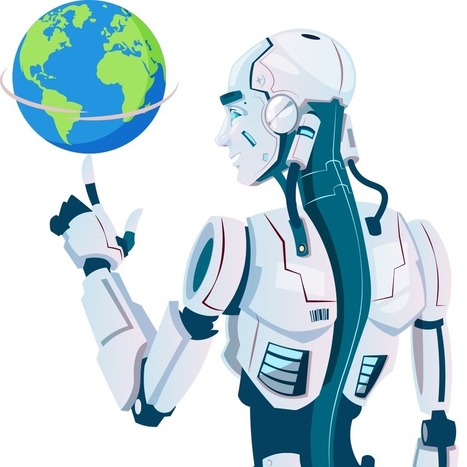
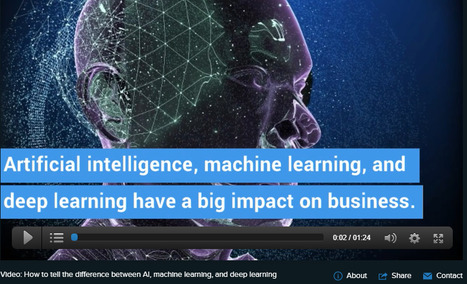

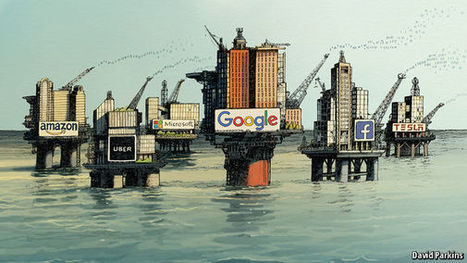
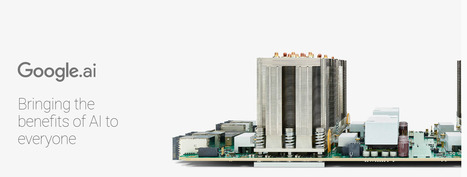

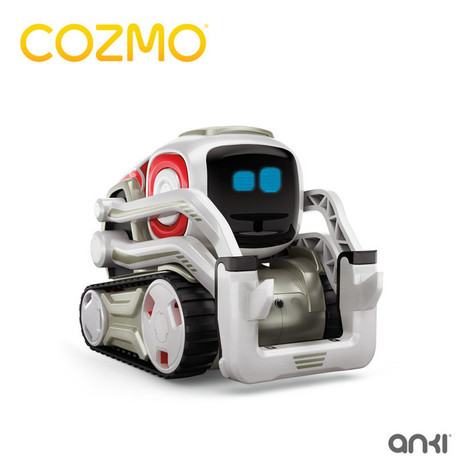

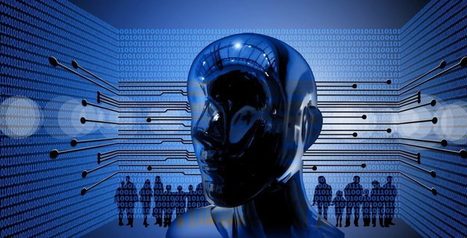

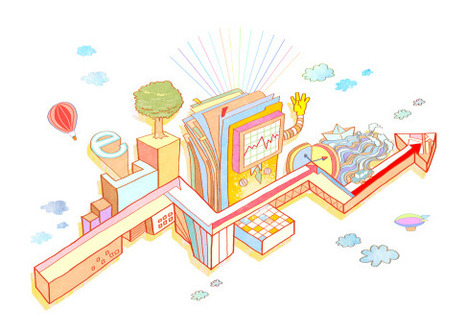
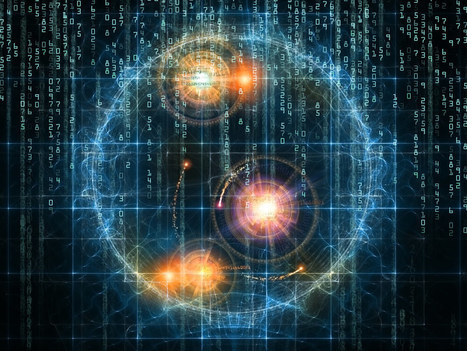
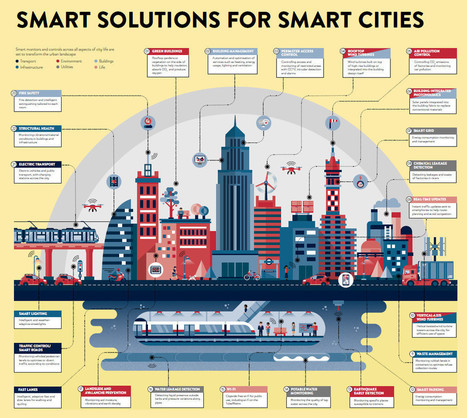
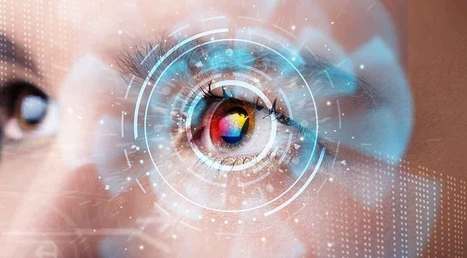

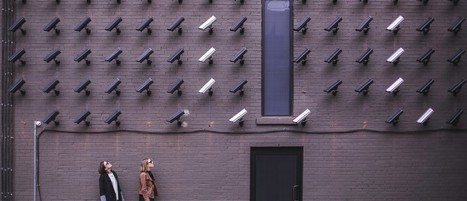
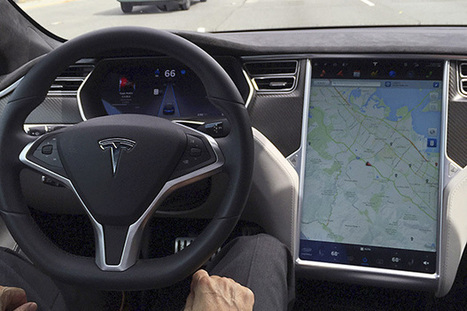






The Optimistic Realists
Position: Digitization and intelligent machines can spur productivity gains that match previous technology waves. Productivity will advance rapidly in certain sectors and for high-performing companies. New jobs will be created, but intelligent technologies may exacerbate the trends of the recent past, in which demand rose for both high- and low-skill workers whose jobs could be easily automated, while demand for middle-skill workers fell. With no simple solutions, more research is needed into the true relationship between productivity, employment, and wages to uncover effective responses.
Three Actions for Shaping the Future
Use technology to augment human skills and reinvent operating models.
Take the opportunity to redefine jobs and rethink organizational design.
Make employees your partners in building the intelligent enterprise.
The debate over technology and jobs will rage on. Business leaders must follow this debate — and participate in it, too. And much more research is needed to fully understand the implications of intelligent technologies on work. In the meantime, companies that actively seize control of what can be done to prepare will position themselves to thrive in this exciting new era.
Learn more / En savoir plus / Mehr erfahren:
https://www.scoop.it/t/21st-century-learning-and-teaching/?&tag=AI
https://www.scoop.it/t/21st-century-innovative-technologies-and-developments/?&tag=AI